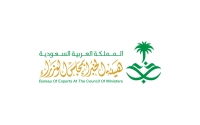
The Law of Literacy and Adult Education in the Kingdom of Saudi Arabia is a set of rules and regulations aimed at literacy among citizens of all age groups in the Kingdom. It was issued on February 16, 1972, with the goal of providing educational opportunities for those who cannot read or write and have exceeded the maximum age for admission to primary schools but are under the age of forty-five. Funding of literacy and adult education projects According to the Law of Literacy and Adult Educa...
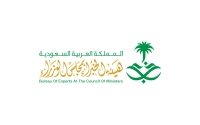
The Law of Precious Metals and Gemstones in the Kingdom of Saudi Arabia is a set of regulations governing the trade of precious metals and gemstones within the Kingdom. It safeguards the rights of traders in precious metals and gemstones, outlines their responsibilities, and protects consumer rights. The law specifies the legal standards for precious metal alloys and products, and it defines violations as well as the penalties imposed on violators. History of the Law of Precious Metals and Gems...
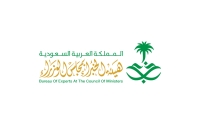
The Law of the Council of Ministers in the Kingdom of Saudi Arabia is a set of rules and regulations governing the functioning of the Council of Ministers , its formation, powers, and the responsibilities and authorities of the ministers. The law was issued on August 20, 1993. Definition of the Council of Ministers According to the Law of the Council of Ministers, the Council of Ministers is a regulatory body headed by the King. Its headquarters is in Riyadh City , but its sessions may be held ...
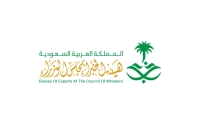
The Integrated Enforcement System 'Tanfidh' is one of the initiatives by the Ministry of Justice in the Kingdom of Saudi Arabia , designed to provide integrated electronic enforcement services. It enables beneficiaries of the enforcement judiciary to access services digitally without the need to visit judicial facilities, except for procedures that require direct judicial intervention, such as imprisonment or resolving enforcement disputes. The Ministry of Justice launched the system ...
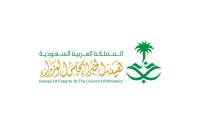
The Shura Council Law in the Kingdom of Saudi Arabia defines the mechanisms for the functioning of the Shura Council , its formation, powers, and responsibilities. It was issued by Royal Decree on March 1, 1992. Some of its articles were later amended by Royal Decrees. Authority of the Shura Council The Law of the Shura Council establishes its authority, stating that the council is formed and carries out its duties in accordance with the provisions of this law and the Basic Law of Governance . ...
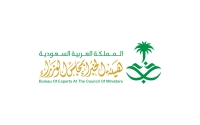
The Anti-Cyber Crime Law in the Kingdom of Saudi Arabia is a set of legal provisions aimed at defining, identifying, penalizing, and combating cybercrimes in the Kingdom. It was issued on March 27, 2007. Goals of the Anti-Cyber Crime Law in Saudi Arabia The Anti-Cyber Crime Law aims to combat cybercrimes by identifying such crimes and determining their punishments to ensure the enhancement of information security, protection of rights pertaining to the legitimate use of computers and informatio...
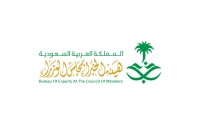
The Law of Trial of Ministers in the Kingdom of Saudi Arabia outlines the penal rules governing violations and crimes committed by members of the Council of Ministers and officials holding the rank of minister in the Kingdom. It specifies the penalties, designates the judicial authority responsible for conducting the trial, administering punishment or granting pardon, and details the procedures for appealing the rulings. The law was issued on June 25, 1960. Penalties in the Law of Trial of Mini...
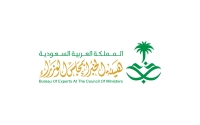
The Foreign Investment Law in the Kingdom of Saudi Arabia is a set of rules regulating foreign investments in the Kingdom. It outlines the conditions, procedures, privileges, and guarantees for foreign investors. Issued by Royal Decree on April 10, 2000, the law comprises eighteen articles, with several amendments made over time. Foreign investor in the Foreign Investment Law Article One of the Foreign Investment Law defines the foreign investor as a natural person who is not of Saudi nationali...
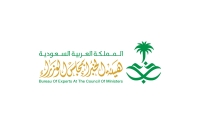
The Law of Municipalities and Rural Areas in the Kingdom of Saudi Arabia is part of a set of laws developed by the Bureau of Experts at the Council of Ministers . It falls within the laws of municipal services, urban planning, and development. This law was issued through a Royal Decree during the reign of King Khalid Bin Abdulaziz Al Saud in 1976. Introduction to the Law of Municipalities and Rural Areas The Law of Municipalities and Rural Areas outlines various aspects of municipal organizatio...

The Social Insurance Law in the Kingdom of Saudi Arabia is a set of rules and regulations governing the insurance rights, compensations, and responsibilities of all workers in both the private sector and government entities. Its purpose is to provide financial support upon the end of their employment, aiming to ensure insurance protection based on the principle of social solidarity. The law was issued by a resolution of the Council of Ministers on November 29, 2000. The approval to implement am...
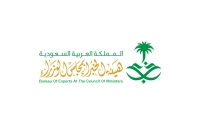
The Law of State Leasing of Property is a set of legal rules established to regulate the state leasing of property operations through government entities in the Kingdom of Saudi Arabia , based on needs. It was issued on July 27, 2022. Goals of the Law of State Leasing of Property The Law of State Leasing of Property seeks to streamline the financial costs associated with government entities' real estate leases, optimize the use of leased properties, and promote governance principles. It ai...
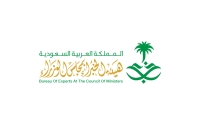
The Real Estate Finance Law in the Kingdom of Saudi Arabia consists of a set of rules that govern real estate financing within the Kingdom. It outlines the terms, responsibilities, and obligations related to real estate finance. This law was issued by Royal Decree on July 3, 2012, and comprises fifteen articles. Saudi Central Bank competencies in the Real Estate Finance Law As per Article Two of the Real Estate Finance Law, the Saudi Central Bank (SAMA) regulates the real estate sector, includi...